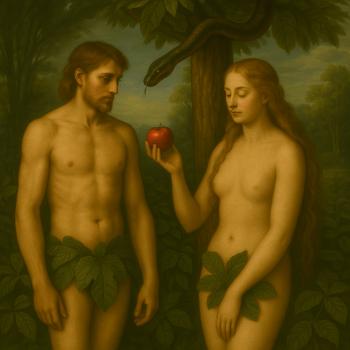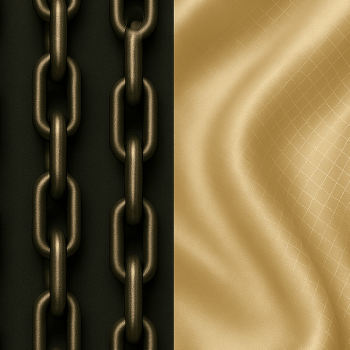In the Eastern worldview, there are some people who believe that self is a construct, and soul is a fiction.
These are some of the most challenging and interesting ideas that we will encounter in our journeys. These ideas are difficult for Westerners, steeped in a culture that stresses individuality. Also, many Westerners consider psychology to focus on self-actualization and spirituality to focus on self-improvement. But, what if there is no self?
Psychologist Abraham Maslow outlined a hierarchy of needs, culminating in self-actualization. After he died, The Farther Reaches of Human Nature, was released. Here, Maslow proposed that we can transcend our narrative selves, devoting our lives to something larger than ourselves (such as service or spirituality) after we are self-actualized.

The Self
Personhood is cultural. In some languages, there is no first person singular (“I” or “me”) or no distinction between first person singular (“I” or “me”) and first person plural (“we” or “us.”) But, in the Western worldview, we think in personal terms. Our economy is based on personal gain. Our politics are based on personal responsibility, and our theology is based on personal salvation.
Ramana Maharshi, a Hindu sage, practiced self-inquiry. “Who am I?” is such an inquiry. We soon realize that whoever we think that we are (a conservative or a liberal, an introvert or an extrovert, a professional or a retiree) we are not eternally any of these things. Our selves are largely or wholly ephemeral. To ask, “Who am I?” is a simple, but profound, exercise.
Some believe that when we peel away everything that is ephemeral, then “I am,” pure “is-ness,” the ground of being, is all that is left. This may be Brahman in Hinduism, God in Christianity, the quantum field in physics, the universe in secular humanism and Yahweh in Judaism. “I am” means Brahman in the Upanishads, just as “I am” means God in the Hebrew Bible.
No-Self?
In many traditions, we die to the self, and “no-self” is one of the cornerstones of Buddhism. Osho, an Eastern mystic, wrote, “Either you can be in existence or you can be in the self…. To be in the self means to become an island…. To be in the self means to draw a distinction between ‘this I am’ and ‘this I am not.'”
Sometimes, Western people can be put off by terms such as “impersonal.” Thus, it can be helpful to think of “impersonal” as “impartial.” If we approach people impartially, we wipe the slate clean. We can see them clearly and compassionately, without predisposition or prejudice.
Thomas Merton, a Christian mystic, wrote, “Most of us live lives of self-impersonation,” conforming to the character that we expect of ourselves or that others expect of us. You might be thinking, “Yes, but we have souls that direct our actions and our thoughts. Surely, if we peel away the self, at the core, we find something (like an apple) not nothing (like an onion.)”
The Soul
Actually, our brains are networks, and scientists have not found a central controller there. Experiments suggest that our brains might be reporters, explaining actions after they happen, rather than controllers, determining actions before they happen. Our brains handle many processes, such as beating our hearts, digesting our meals, and working our lungs, without apparent direction.
In fact, the notion of the soul originated in philosophy, not religion. Aristotle believed that souls are the life forces that animate all beings:
- Nutritive souls governed growth in plants, animals, and people.
- Sensitive souls governed sensation in animals and people.
- Rational souls governed thought in humans.
No Soul?
As scientists have attributed growth and sensation to biology, chemistry, and physics, the first two notions of soul collapsed, and the third notion of soul is collapsing. If human beings evolved, then how and when did souls evolve? What is a soul? What does a soul do? Where is a soul found? Could we have damaged or missing souls, like some people have damaged or missing toes?
If our souls are not our bodies and brains or our personalities and thoughts, then what are souls? How do souls survive our physical deaths, what do they transport, and where do they travel? Also, how can a disembodied soul be rewarded or tormented?
Singer Tom Waits says that, “We are monkeys with money and guns.” Can we believe that we are the culmination of creation or that we were singularly created in the image of God if we suspect that only 50,000 years ago, homo sapiens were climbing trees for food, communicating in grunts, and copulating with Neanderthals?
Julien Musolino, a psychologist who wrote The Soul Fallacy, states:
“Notice that the conclusion, if we want to be intellectually honest, should not be that there is no soul, but rather, that there are no good reasons to believe that we have souls, and that there are very good reasons to believe that we do not have souls…. In the end, the soul, like the emperor’s new clothes, has exactly the properties that it should have if it did not exist.”
Where Do We Go from Here?
The notions of self and soul are deeply embedded in Western culture and Western religion, and it might be distressing to some people to even consider the possibility that they do not exist. In fact, the notion of the soul, because of its association with the notion of the afterlife, might be one of Western religion’s most precious, albeit most precarious, beliefs.
But all is not lost. Imagine that we are composed of matter; that matter, too, is energy; and that energy is neither created nor destroyed. Imagine that our energy is stirred into the Cosmic Soup, just like our bodies are stirred into the terrestrial soup; that our energy will merge with God or Ultimate Reality; and that our energy (like waves on the ocean) might reemerge in other matter.
In that scenario, we might have eternal life, but we might not have a separate identity. At that point, will I care if “I” am not me? What do you think?
If you want to stay up to date on the latest from You Might Be Right, simply subscribe with your email.














